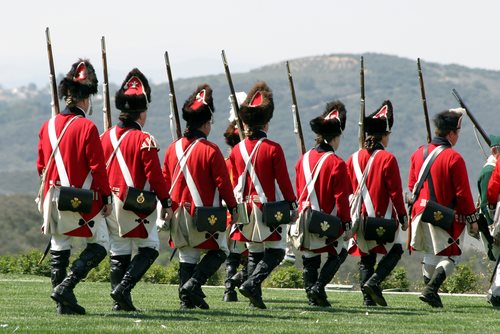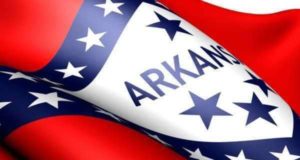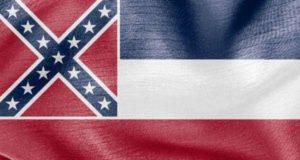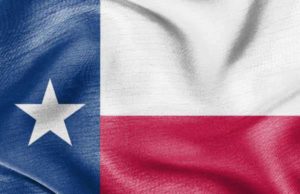
What is the Quartering Act?
The Quartering Act is the name multiple acts during the 18th century enacted by the Parliament of Great Britain. The Quartering Acts were ordered in order to force the local governments in the colonies of America to provide provisions and housing for the British soldiers. The Quartering acts were amendments made to the Mutiny Act, which was an act that had to be annually renewed by the Parliament of Great Britain. The Quartering act was intended originally as a response to the issues and problems that occurred during Great Britain’s victory in the Seven Years War. The act later became a source of great tension between the governments in London as the citizens of the thirteen colonies in America.
The Quartering Act of 1765
The government of Grenville built up strength through the British troops in the North American colonies at the tail-end of the French and Indian War between 1756-1763 in order to protect the American colonies against the threats that were posed by the remaining Native Americans and Frenchmen.
The commander-in-chief of military forces in Colonial North America, Lieutenant-General Thomas Gage as well as other British officers who were involved or had fought during the French and Indian War, had found it extremely difficult to convince the colonial assemblies to pay the expenses for provisioning and quartering of the troops who on the march. Because of this, Gage asked Great Britain’s Parliament to assist in the situation. Many colonies had supplied provisions to the troops during the war, but the question of doing so was heavily disputed during the peacetime.
In March 1765, Great Britain’s Parliament passed the first Quartering Act in order to address the applied anxieties of this troop deployment. Under the provisions of this legislation, each colonial government was told to provide for the basic requirements of a soldier who was stationed within the borders of the colony. Specified items dictated in the legislation included cooking utensils, firewood, bedding, cider or beer, and candles. The Quartering Act was later expanded in 1766 and then required the various assemblies of the colonies to place these soldiers in unoccupied houses and taverns.
The Quartering Act of 1765 went much further beyond the requests of Gage. The North American colonies questioned and disputed the legality of the Quartering Act because it seemed to go against the Bill of Rights of 1689, which denied taxation without a form of representation as well as the raising or maintaining of a standing army without having the Parliament’s consent. No standing army had been previously kept in the colonies prior to the French and Indian War, so the colony assemblies questioned why a standing army was necessary after the defeat of the French.
The motivations of the British for enforcing this Quartering Act were mixed. Many officials were truly and legitimately worried about protecting the American colonies from potential attacks and considered the Quartering Act a logical means to keep the colonies safe. However, other motivations for the Quartering act included the wish to cut down on costs to maintain the soldiers. If the colonies had to be protected, some felt that this protection should come at a cost to the colonies.
More specifically, the British ministry was worried about being faced with the prospect of having to bring home the veterans of the French and Indian War and providing these soldiers with pensions and pay. If the soldiers did not return to Great Britain and instead stayed in service in the American colonies, the colony assemblies could then pay for their services while sparing the English public from additional tax burdens.
During the Stamp Act unrest that went from of 1765 to early 1766, there were an increasing amount of soldiers who were stationed in or around American colony cities. Many of those soldiers were new units who were brought from England. There were also some that were transferred to the colonies from from western posts, a strategic move that allowed the Indians to recover some of the offensive on certain portions of the American frontier.
The reaction of the colonists to the Quartering act was mainly negative and was based on different issues.
The first was the traditional fear of the presence of standing armies. The colonists typically preferred to rely on the colony’s militia units instead of formal armies. Militiamen could be quickly called for their service during a specific crisis, and then be disbanded after the fighting was finished.
The second issue was the cost to the colonists. The price of the expenses for supporting an army was a very big deal for all of the colonial assemblies. When an attack by a foreign power seemed imminent in the past, the colonial assemblies typically responded by providing the necessary appropriations. However, during the mid-1760s, the majority of colonists no longer felt any fear against the French. Many colonists had decided that the soldiers stationed in the colonies were present for the sake of ensuring colonial American compliance with the unpopular programs which were drafted in England.
The resistance from the colonies to the Quartering Act was specifically the strongest in the colony of New York. In January 1766, the New York assembly refused to fund the complete amount that was requested by the Crown of Great Britain. The New York colonists reasoned that it was not fair on the part of Great Britain to expect New York to pay the full cost of the growing army of Thomas Gage. There was much bickering between the British officials and the assembly which continued into the fall, which at that point the legislature of New York decided by a vote to not fund the British Army at all.
In October of 1767, the assembly of New York was suspended until the need of the soldiers were completely funded. This crisis with the assembly later passed, but an incredible amount of bitterness and anger remained, making many colonists extremely suspicious about the intentions of the British empire.
The Quartering Act of 1765
A second additional Quartering Act was passed on June 2, 1774 by the Parliament of Great Britain, as part of a series of laws that later came to be known by the Colonists as the Intolerable Acts. The second Quartering Act as well as the other intolerable acts were created by Great Britain as a way to restore Great Britain’s imperial control over the colonies in North America. While many of the acts found in the Intolerable Acts specifically dealt with the Massachusetts Bay Province, the revised Quartering Act of 1774 applied to all of the American colonies.
In the previous Quartering Act, the North American colonies had been required by the legislation to provide housing and other necessities for soldiers. However, the colonial legislatures had been very uncooperative in following these policies. The amended Quartering Act, like the Quartering act, allowed a governor of the colony to house the British soldiers in other buildings in the colony if suitable quarters could not be provided. However, the newer Act did not contain a provision that was found in the previous version of the Act which stated that soldiers should be provided with necessary provisions. This updated Quartering Act expired on March 24 of the year after.
The colonists rejected this Act and the use of the private property of the Colony being used without their consent. However, out of all the different Intolerable Acts, the Quartering Act was the one that generated the least amount of dissent.









































